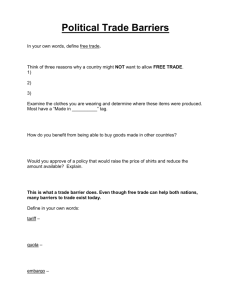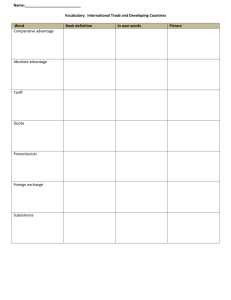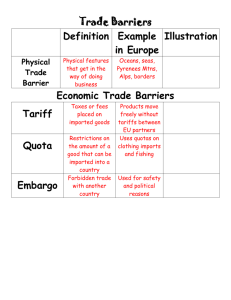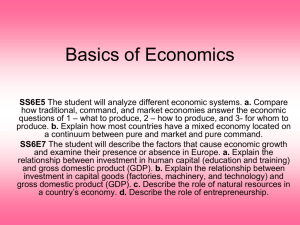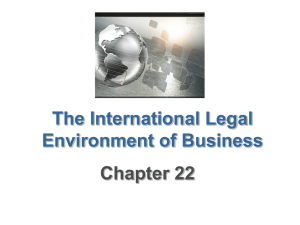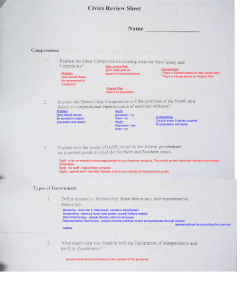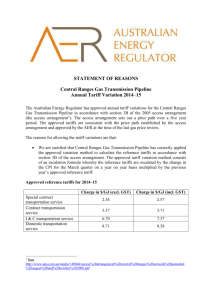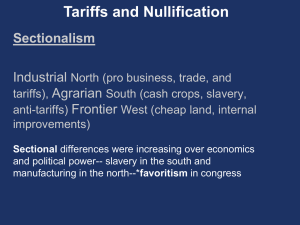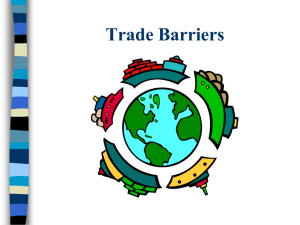Definition of Tariff
advertisement
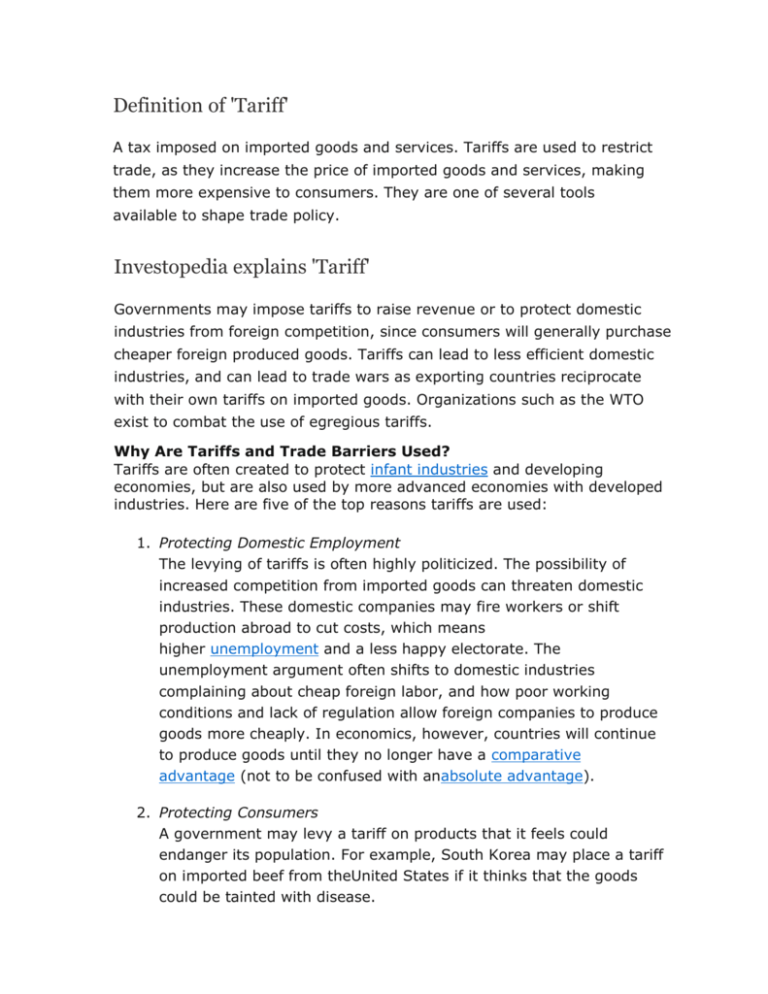
Definition of 'Tariff' A tax imposed on imported goods and services. Tariffs are used to restrict trade, as they increase the price of imported goods and services, making them more expensive to consumers. They are one of several tools available to shape trade policy. Investopedia explains 'Tariff' Governments may impose tariffs to raise revenue or to protect domestic industries from foreign competition, since consumers will generally purchase cheaper foreign produced goods. Tariffs can lead to less efficient domestic industries, and can lead to trade wars as exporting countries reciprocate with their own tariffs on imported goods. Organizations such as the WTO exist to combat the use of egregious tariffs. Why Are Tariffs and Trade Barriers Used? Tariffs are often created to protect infant industries and developing economies, but are also used by more advanced economies with developed industries. Here are five of the top reasons tariffs are used: 1. Protecting Domestic Employment The levying of tariffs is often highly politicized. The possibility of increased competition from imported goods can threaten domestic industries. These domestic companies may fire workers or shift production abroad to cut costs, which means higher unemployment and a less happy electorate. The unemployment argument often shifts to domestic industries complaining about cheap foreign labor, and how poor working conditions and lack of regulation allow foreign companies to produce goods more cheaply. In economics, however, countries will continue to produce goods until they no longer have a comparative advantage (not to be confused with anabsolute advantage). 2. Protecting Consumers A government may levy a tariff on products that it feels could endanger its population. For example, South Korea may place a tariff on imported beef from theUnited States if it thinks that the goods could be tainted with disease. 3. Infant Industries The use of tariffs to protect infant industries can be seen by the Import Substitution Industrialization (ISI) strategy employed by many developing nations. The government of a developing economy will levy tariffs on imported goods in industries in which it wants to foster growth. This increases the prices of imported goods and creates a domestic market for domestically produced goods, while protecting those industries from being forced out by more competitive pricing. It decreases unemployment and allows developing countries to shift from agricultural products to finished goods. 4. National Security Barriers are also employed by developed countries to protect certain industries that are deemed strategically important, such as those supporting national security. Defense industries are often viewed as vital to state interests, and often enjoy significant levels of protection. For example, while both Western Europe and theUnited States are industrialized, both are very protective of defense-oriented companies. 5. Retaliation Countries may also set tariffs as a retaliation technique if they think that a trading partner has not played by the rules. For example, if France believes that the United States has allowed its wine producers to call its domestically produced sparkling wines "Champagne" (a name specific to the Champagne region of France) for too long, it may levy a tariff on imported meat from the United States. If the U.S. agrees to crack down on the improper labeling, France is likely to stop its retaliation. Retaliation can also be employed if a trading partner goes against the government's foreign policy objectives.
